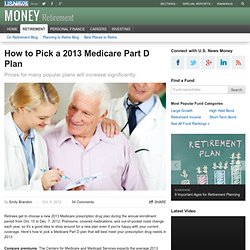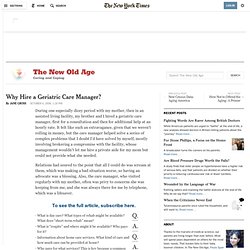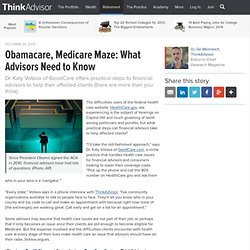

Fifty Plus Guide. Www.alz.org/downloads/facts_figures_2013.pdf. Social Security: Planning Tips by Age.
Social Media General. Alzheimers Hidden Costs. How to Pick a 2013 Medicare Part D Plan. Retirees get to choose a new 2013 Medicare prescription drug plan during the annual enrollment period from Oct. 15 to Dec. 7, 2012.

Premiums, covered medications, and out-of-pocket costs change each year, so it's a good idea to shop around for a new plan even if you're happy with your current coverage. Here's how to pick a Medicare Part D plan that will best meet your prescription drug needs in 2013: Compare premiums. The Centers for Medicare and Medicaid Services expects the average 2013 monthly premium for basic prescription drug coverage to be $30 in 2013, which is essentially unchanged from 2012. However, some existing Part D plans will have significant premium increases.
Retirees will need to shop around for new plans to avoid sometimes significant premium hikes. Obamacare Aims to Close Medicare 'Doughnut Hole' Summary.pdf. Reducing the Stress of Pre-Retirement. The end of the year is often a stressful time, with holiday commitments, extra expenses and the pressure to finish up old projects and set new resolutions for the year ahead.

These demands are not unlike those that hit pre-retirees, who may often find their own stress levels rising as they think about everything that must be in place before they can move into the next phase of their lives. Retirement is becoming real for pre-retirees, and many are concerned about whether they are really "retirement ready". No matter the source - holidays, retirement, work or family - stress can take a heavy toll on your health, mental state and wallet.
How you prepare for and deal with it can make a world of difference in how it impacts you. Interesting new research from ING U.S. shows a striking difference between pre-retirees and retirees in terms of their life stress. Your Early Retirement Years - Wells Fargo Conversations. Budgeting for the first years of your retirement can be tricky since many people don't realize how much money it costs to be retired.

Among the first rules to remember? You'll need to account for both leisure activities and expenses, like health insurance, that were once covered by an employer. Why Hire a Geriatric Care Manager? During one especially dicey period with my mother, then in an assisted living facility, my brother and I hired a geriatric care manager, first for a consultation and then for additional help at an hourly rate.

It felt like such an extravagance, given that we weren’t rolling in money, but the care manager helped solve a series of complex problems that I doubt I’d have solved by myself, mostly involving brokering a compromise with the facility, whose management wouldn’t let me hire a private aide for my mom but could not provide what she needed. Relations had soured to the point that all I could do was scream at them, which was making a bad situation worse, so having an advocate was a blessing. Also, the care manager, who visited regularly with my mother, often was privy to concerns she was keeping from me, and she was always there for me by telephone, which was a lifesaver.
Many of you have asked questions about geriatric care management and how it is performed. Long-Term Care Costs 101. MISSION, KS--(Marketwired - Nov 7, 2013) - (Family Features) There are important realities every American must know about long-term care.

Long-term care is more expensive than most people think. And, most importantly, the cost of care is usually paid for out of savings and income. About 70 percent of people turning 65 can expect to need some kind of long-term care as they age. A number of public programs, including Medicare and Medicaid, may help pay for some long-term care services under certain circumstances. However, each program has specific rules about what services are covered, how long you can receive benefits, whether or not you qualify for benefits, and how much you have to pay in out-of-pocket costs. Assessing the Costs of Caring for an Aging Relative. Estimating Long-Term Care Costs in 2013 and Beyond. Whether it's a short stay at an assisted living facility, around-the-clock care from an in-home nurse or even help from younger family members, roughly half of all Americans 65 and older will require long-term care.

Improved medical technology is saving and prolonging lives, but accidents and degenerative diseases can diminish the independence of even the most seemingly-healthy seniors. Unfortunately, Medicare bears little to no responsibility for the costs of long-term care, and the recent Affordable Care Act has reduced government coverage even further. No matter when they plan to retire, Americans in their 60s, 50s and even 40s need to start planning and saving for these additional expenses. Health Care Costs - Budget Your Retirement Savings. Even if you face no other costs, paying for premiums and deductibles for the traditional Medicare choices of Parts A, B and D (rather than opting for the Medicare Advantage program known as Part C) can quickly eat up retirement savings.

Consider: Part A covers inpatient hospital costs, stays in skilled nursing facilities, home health care visits and hospice care. Most beneficiaries pay no premium for Part A, but there is a deductible of $1,184 this year for inpatient hospital stays. Part B, which covers doctor visits, outpatient services, preventive care and some home health visits, does charge a premium, and in 2013 the standard monthly premium is $104.90 — or $1,258.80 for the year. Should You Purchase Long-Term-Care Insurance? Should You Purchase Long-Term-Care Insurance? Estimating Long-Term Care Costs in 2013 and Beyond. Long-term Care: Perceptions, Experiences, and Attitudes of Americans 40 or Older. Chicago, April 24, 2013—The Associated Press-NORC Center for Public Affairs Research announces the publication and availability of a major survey that provides a new baseline of understanding about what Americans 40 years or older believe about their need for long-term care services, what such care would cost, and how such issues fit into their concerns about growing older.

The survey reveals that while there is widespread concern among this population about the need for long-term care, little is being done to plan for it. Funding for the survey was provided by The SCAN Foundation. “It is estimated that 70 percent of Americans who reach the age of 65 will need some form of long-term care for an average of three years each,” said Trevor Tompson, director of the AP-NORC Center.
“The rapidly aging population brings with it important social and public policy questions about preparing for and providing quality long-term care. Statistics about the aging of America are compelling. Abuse of elderly is on the rise.
5 Steps to Consider Before Retiring - Wells Fargo Conversations. Vibrant, artsy and laid-back with near-perfect weather, San Diego is highly rated as a place to retire.

Updated January 2014 — Whether you’re 30 or twice that age, it’s never too early to start planning for your retirement. That means thinking now about what age you want to retire, how you see your retirement, and the financial moves you need to make to help get there. Chris Considine, Senior Director of Planning at Wells Fargo Private Bank, and Pat Armstrong, Head of Family Dynamics for Abbot Downing, share some retirement planning steps to consider. 1. Try out that new location before you move.
Are you up to the effort of making new friends or do you prefer the comfort of familiar faces? "Before making a major move, spend some time there and make sure you like it," Armstrong says. When a Client Becomes Severely Ill. Obamacare, Medicare Maze: What Advisors Need to Know. This copy is for your personal, non-commercial use only.

To order presentation-ready copies for distribution to your colleagues, clients or customers, click the "Reprints" link at the bottom of any article. October 24, 2013 Dr. Katy Votava of GoodCare offers practical steps to financial advisors to help their affected clients (there are more than you think) Since President Obama signed the ACA in 2010, financial advisors have had lots of questions. Protecting Your Savings from the Cost of a Long-Term Care Illness. This is a guest post by Dagmar M. Pollex, J.D, an estate planning attorney based in Braintree, MA.
The topic of protecting one’s savings from the cost of a long-term care situation is a key retirement planning issue for Baby Boomers approaching retirement and those already in retirement. Additionally it is a major concern for those with aging parents as well. Today, the risk of losing your life savings to a long term care illness looms as the largest threat to your future security. That’s why one of the biggest questions and concerns many people have about their lifetime financial security is what would happen if they suffer a long term disabling illness, such as Parkinson’s disease or Alzheimer’s.
The reason for this concern is clear. Assessing the Costs of Caring for an Aging Relative. Health Care Costs - Budget Your Retirement Savings. Aging in Place, Universal Design Can Help People Age in Their Homes - AARP Bu... An AARP national survey in November found that two-thirds of those age 45 and older want to remain in their homes as long as possible. The percentages tend to increase, up to 90 percent, as people age. Architects and designers have responded by creating ways to make homes safe and livable for all stages of life.
Once an issue just for older people, universal design is now more broadly applied to all ages and all stages of life. "It's becoming increasingly more popular and available," said AARP spokeswoman Nancy Thompson. Wealth Planning content from WealthManagement. If Alzheimer’s disease isn’t on your radar yet, it should be. As the baby boomer generation ages, the number of people with Alzheimer’s will climb: an estimated 16 million are expected to suffer from the disease by 2050, up from 5.4 million today, according to the Alzheimer’s Association. One early sign of the disease is trouble managing money, which puts financial advisors on the front lines. What’s more, according to Fidelity Investments, Alzheimer’s can double the amount of money a couple will need in retirement. Poll: Half of Older Workers Delay Retirement Plans.
CHICAGO (AP) -- There was a time when Tom Sadowski thought he'd stop working after turning 65 earlier this year. But he's put off retirement for at least five years — and now anticipates continuing to do some work afterward. In an illuminating sign of changing times and revised visions of retirement, an Associated Press-NORC Center for Public Affairs Research poll released Monday finds older Americans like Sadowski not only are delaying their retirement plans, they're also embracing the fact that it won't necessarily mark a complete exit from the workforce.
Some 82 percent of workers 50 and older say it is at least somewhat likely they will work for pay in retirement. And 47 percent of them now expect to retire later than they previously thought — on average nearly three years beyond their estimate when they were 40. Men, racial minorities, parents of minor children, those earning less than $50,000 a year and those without health insurance were more likely to put off their plans. Protecting Your Savings from the Cost of a Long-Term Care Illness.
Should you use a financial advisor for healthcare? Health care planning for retirees Tuesday, 29 Oct 2013 | 1:46 PM ET Financial planners are also beginning to advise clients on changes in retiree health care programs, reports CNBC's Sharon Epperson. Medicare's 'Observation' Status Can Cost You Big. Americans Keep Pushing Off Retirement Plans. It is said that numbers don’t lie, and when it comes to retirement planning, the recent numbers are downright distressing with only 13% of people saying they feel confident they can afford a comfortable retirement.
This is according to a recent Retirement Confidence Survey by the Employee Benefits Research Institute. When you consider the findings of another recent survey, those results aren’t surprising. According to a nationwide survey conducted by TheStreet’s MainStreet.com, nearly 70% of Millennials (the so-called Generation Y) have taken no steps yet to save for retirement. Clearly a lot of Americans will have a lot of catching up to do as they get closer to retirement age, and that is making the role of the retirement planner more challenging than ever.
And as both of these surveys reveal, the recent economic downturn played a significant role in setting people back. Urken said he wasn’t really surprised at TheStreet’s survey results. What Part B covers. Health insurance tips for seniors. John J. Bowen Jr.: Help Clients Protect Their Wealth. Help Your Clients Protect Their Wealth You help your clients invest their assets, but how focused are you on protecting them? Wealth protection is a top five concern among affluent investors, according to research by CEG Worldwide, my firm. And yet it's an issue that many advisors overlook. How much does Medicare Advantage cost? We know you’d rather be playing golf, but… Medicare’s Annual Enrollment Period (AEP) – aka Annual Election Period or Open Enrollment Period – started Monday.
So, on Monday we published an analysis of the “public use” Medicare Advantage “landscape source files” that the Centers for Medicare and Medicaid Services makes available on their web site. In the report we looked at the years 2011, 2012 and 2013. Essentially what were trying to do is summarize the basic information provided in these landscape files so they’re easy for anyone to understand and use. The Hidden Costs of Medicare. Created in 1965, Medicare was intended to answer growing reports of impoverished seniors languishing or dying because they lacked health insurance.
BitterPill.pdf. Nationwide Healthcare costs study 2012. Age-wave-Survey. Health Care Costs - Budget Your Retirement Savings. Planning for Care Costs. Www.caregiving.org/data/Evercare_NAC_CaregiverCostStudyFINAL20111907.pdf. Connecting Health To Wealth. A few years ago, Dave Caruso, a CFP licensee in Danvers, Mass., started to notice something quite strange. Clients who once peppered him with questions about their investments were starting to ask him about an entirely different topic—health care.
These were problems he didn’t know much about. Is Your Firm Prepared for Alzheimer's? How to Communicate with Clients with Dementia. Who Gets the Beach House? A How-To for Advisors on Helping a Family Decide. Strategies for Serving Clients Online. Advisors Overwhelmed by Product Pitches: Study. Advisors will probably say they don't need a study to tell them they're barraged by product pitches; for manufacturers, however, the results could be eye-opening.
The typical advisor receives 50 to 100 different marketing and sales contacts a week in various formats, according to a new report from the Boston-based research and consulting firm Practical Perspectives. Additionally, the report, “Communicating with Financial Advisors–Insights and Opportunities 2013,” found roughly one in three advisors indicate they actually receive significantly more communications. “Many advisors find the volume of marketing and sales contact to be overwhelming and are challenged to devote time to reflect on these outreach efforts,” the report says. Some Clients Overspend on 'Guys' The Importance of Prioritizing Family Financing. 201309_cfpb_elder-abuse-guidance. Banks can help spot elder financial exploitation and abuse. Elderly man scammed for thousands, kids’ lives threatened. Aging in Place: Senior Living and Universal Design. Survive the Medicare Enrollment Maze. What to Make of The Affordable Care Act. A Guide to Affordable Dental Care. Q & A: Medicare and the Insurance Exchanges.
AARP: Self-actualizers more confident about finances, retirement. Www.alz.org/downloads/facts_figures_2013.pdf. Long Distance Caregiving, Hiring a Caregiver, and Medicare. Long term care: Early planning pays off. A New Tool to Calculate Long-Term Care Needs. Five Ways to Get Families to Talk About Finances. Assessing the Healthcare Expenses in Retirement. What Advisors Need to Know about Health-Care Planning. Patients Mired in Costly Credit From Doctors. Health Care Costs - Budget Your Retirement Savings. Top 10 Threats Facing Investors, Small Businesses.